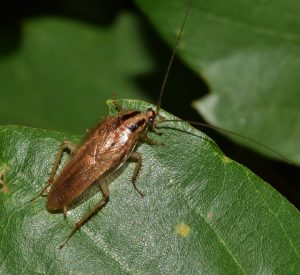
More Than Just a Pest: The Surprising Role of Cockroaches in Zimbabwe’s Ecosystem
The mere mention of cockroaches sends shivers down most people’s spines. These ubiquitous creatures, often associated with unsanitary conditions, are rarely considered beneficial. Yet, in the diverse tapestry of life in Zimbabwe, cockroaches play a vital, albeit often overlooked, role in maintaining ecological balance.
A Look at the Diversity: Cockroaches in Zimbabwe
While we often think of cockroaches as a single, homogenous group, the truth is that Zimbabwe is home to a remarkable array of cockroach species. Some are common household pests like the American cockroach (Periplaneta americana) and the German cockroach (Blattella germanica). However, the majority are wild, living in a wide range of habitats from forests and grasslands to rocky outcrops and even termite mounds.
Essential Decomposers: Breaking Down Nature’s Debris
Cockroaches are nature’s clean-up crew, playing a crucial role in the decomposition process. They feed on decaying organic matter, breaking it down into smaller particles and releasing nutrients back into the soil. This process is vital for the recycling of nutrients and the health of the ecosystem. Imagine a world without decomposers – the earth would be piled high with dead plants and animals, preventing new life from flourishing.
A Food Source for Many:
Cockroaches, like all living organisms, are a part of the food chain. They are prey for a wide variety of animals, including birds, lizards, frogs, and even some mammals. This makes them a vital link in the transfer of energy and nutrients within the ecosystem. For example, the larvae of some species of cockroaches are a significant food source for the larvae of some endemic Zimbabwean beetle species.
Beyond Decomposition: Cockroaches and Seed Dispersal
Some species of cockroaches are known to play a role in seed dispersal. They consume fruits and seeds, and often carry the seeds in their droppings. This can help distribute seeds to new areas, aiding in plant propagation and biodiversity.
Important Indicators of Environmental Health:
The presence and abundance of certain cockroach species can be an indicator of the health of the ecosystem. For example, the presence of certain species in a specific habitat can signal a particular type of disturbance, such as pollution or deforestation. This information can be used by researchers to monitor environmental changes and take appropriate actions.
Challenges and Considerations:
Despite their ecological importance, cockroaches can be a nuisance in urban areas. Some species are known to carry pathogens that can cause diseases in humans. It is essential to practice proper hygiene and sanitation to prevent infestations in homes and communities.
The Bigger Picture:
The next time you encounter a cockroach, remember that it is not just a pest. It is a vital part of the intricate web of life that makes up Zimbabwe’s diverse ecosystem. By understanding their role, we can better appreciate the importance of even the smallest creatures and work towards conserving the delicate balance of nature.
Further Research and Conservation Efforts:
While there has been significant research on cockroaches worldwide, there is still much to learn about the specific roles of various species in Zimbabwe’s ecosystem. Further research into their ecological interactions, particularly with endemic species, is crucial.
Furthermore, it is vital to raise awareness about the importance of cockroaches and encourage responsible pest management practices that minimize harm to beneficial species while addressing the concerns of human health and sanitation.
By appreciating the intricate interconnectedness of nature, we can work towards a future where we coexist with all living things, even the ones we might consider undesirable, for the benefit of the entire ecosystem.
